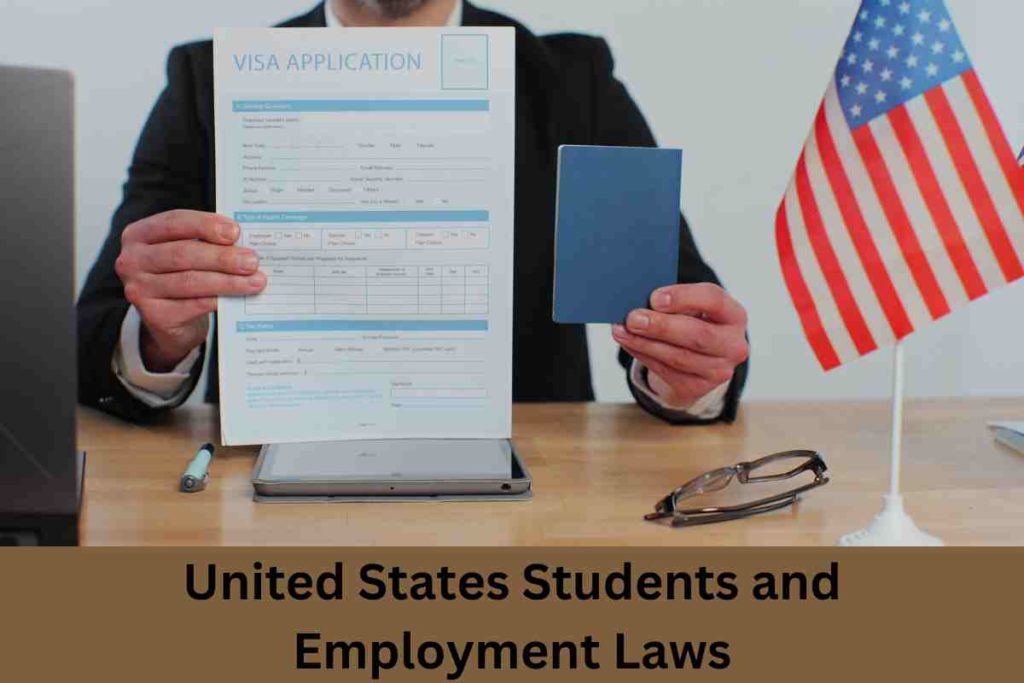United States Students and Employment Laws

United States Students and Employment Laws:- In the United States, the intertwining realms of education and employment are governed by a complex framework of laws. This framework is designed to ensure that the rights and interests of students who are also employees are adequately protected. Through this article, we delve into the various aspects of employment laws as they relate to students in the US, and shed light on how these laws impact their academic and professional lives.
Federal Employment Laws and Students
The federal government has laid down a myriad of laws to govern employment across the states. These laws play a pivotal role in shaping the employment landscape for students.
- Fair Labor Standards Act (FLSA): The FLSA sets the groundwork for minimum wage, overtime pay, and child labor standards. This act outlines the conditions under which students can be employed and the minimum compensation they are entitled to receive.
- Occupational Safety and Health Act (OSHA) ensures safe and healthy working conditions by setting and enforcing standards. Students employed in various sectors are covered under OSHA, ensuring their safety at the workplace.
- Title VII of the Civil Rights Act: Title VII prohibits employment discrimination based on race, color, religion, sex, or national origin. This law extends protection to students employed in various capacities, ensuring a discrimination-free workplace.
- Americans with Disabilities Act (ADA): The ADA provides protection against discrimination for individuals with disabilities. This includes students who are employed while pursuing their education.
- Family and Medical Leave Act (FMLA) provides eligible employees with up to 12 weeks of unpaid, job-protected leave per year for specified family and medical reasons. Students who work while studying and meet the eligibility criteria can avail themselves of these provisions.
State Employment Laws and Students
Besides federal laws, each state has its own set of employment laws. These laws further delineate the rights and responsibilities of student-employees.
- Minimum Wage Laws: States have the authority to set their own minimum wage rates, which often vary from the federal minimum wage. Students should be mindful of the prevailing minimum wage in their respective states.
- Work Permit Regulations: In some states, minors require a work permit to be employed. The procedures to obtain these permits may require the involvement of the student’s school.
- Hour Restrictions: There are often restrictions on the number of hours a student can work, especially if they are a minor. These restrictions aim to ensure that employment does not adversely affect their education.
Impact of Employment Laws on Student Employment
The employment laws in the US have a substantial impact on student employment. They help in maintaining a balance between education and employment, ensuring that one does not unduly impact the other.
- Protection Against Exploitation: Employment laws provide a shield against the exploitation of student-employees, ensuring they are fairly compensated and work in safe environments.
- Supporting Academic Pursuits: By regulating the working hours and conditions for students, these laws ensure that students do not compromise their education for employment.
- Fostering Equal Opportunities: Anti-discrimination laws promote equality in the workplace, ensuring that all student-employees have equal opportunities regardless of their background.
Legal Resources for Student-Employees
It’s imperative for student-employees and their employers to be well-versed with the relevant employment laws. Numerous resources are available for gaining insight into these laws, including government websites, legal aid services, and university legal services.
Conclusion: United States Students and Employment Laws
The landscape of employment laws for students in the US is both broad and intricate. Understanding these laws is crucial for both students and employers to foster a conducive working and learning environment. This comprehension aids in promoting fair and equal employment opportunities while safeguarding the educational pursuits of students.





1 thought on “United States Students and Employment Laws”